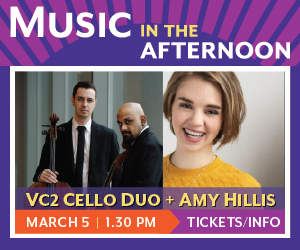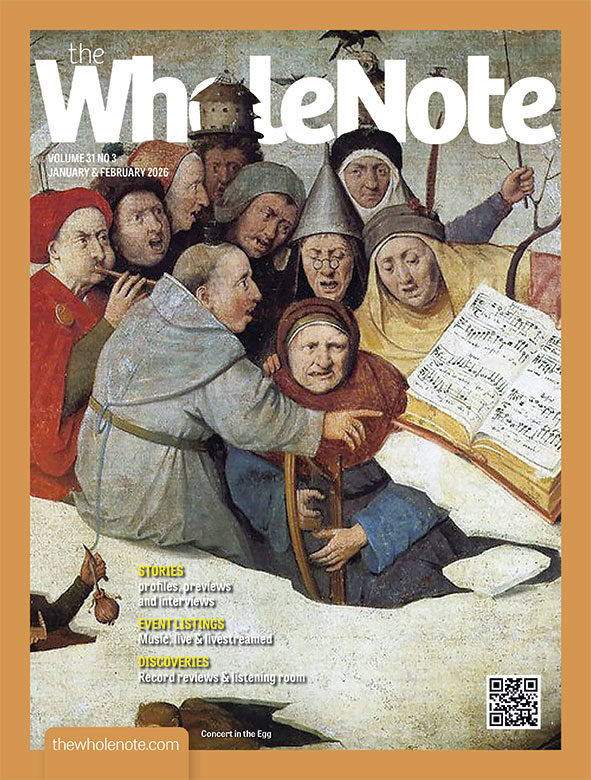Sometimes it’s something in the water. Sometimes it’s something in the air. Sometimes you just scratch your head and say “weird, eh?”
The case of John Blow
Not exactly a household word in musical circles, John Blow (who it is reasonable to assume was born sometime not too long before his baptismal date of 23 February 1649, was an English Baroque composer and organist whose most enduring musical claim to fame was that he was a teacher of Henry Purcell, who was born on September 10, 1659. Purcell, in contrast to Blow was, right up until the beginning of the 20th century, if not a household name, the most widely recognized English-born composer. (Blow’s other claim to fame, I suppose, is that he outlived Purcell, who died in 1695, by 13 years.)
Purcell’s name has certainly featured regularly in this magazine over the 22 years and a bit we have been in business. But as of the end of January 2002, Blow’s name, to the best of my knowledge, had never appeared in our listings or anywhere else in the magazine.
And then all of a sudden, there he was! Twice. In both cases in the context of concerts featuring the music of Blow and Purcell. Two concerts titled, roughly, “Music of John Blow and Henry Purcell.” Same date (March 2, 2002), same time, and within one block of each other, on Bloor St. W., at Trinity-St.Paul’s and Church of the Redeemer respectively.
Weird, eh?
Sometimes coincidences like these can be easily explained by significant anniversary dates. Take the case of Glenn Gould, for example, who was born in September 25, 1932; all years ending in a two or a seven tend to become an occasion for heightened remembrance of Gould’s contribution to music and art. This month, for instance, Gould would have turned 85. Two of our writers this issue, David Jaeger and Paul Ennis, both take note of occurrences relating to this anniversary – one well worth commemorating, in my humble opinion, especially when (according to a recent (and admittedly entirely random and unscientific) survey, an alarming number of students currently enrolled in the Glenn Gould School at the Royal Conservatory cannot name the musical instrument that Glenn Gould played.
Miller’s Tales
Nowhere near as seismically weird as the case of John Blow, but interesting nonetheless, is the following:
A month ago I received an enthusiastic message from Stuart Broomer, a longtime regular reviewer of jazz recordings for this magazine, asking if we had seen a copy of Mark Miller’s latest book. (With at least a dozen books to his name and countless articles, Miller is very likely Canada’s leading jazz writer, photographer and journalist. Safe to say, he is at this moment in time probably better known than drummer Claude Ranger, the subject of this latest book (although I am sure Miller would be only too happy if his book helped to redress that fact.) Broomer’s cogent review of Miller’s book appears in this issue.
Meanwhile, independent of the above development, contributor Ori Dagan submitted a story for the issue on the second annual Kensington Market Jazz Festival, headed up with a short quote from, you guessed it, none other than Mark Miller, taken not from one of Miller’s books but, this being the century we live in, from a recent Facebook post by Miller, musing on the implications, mostly positive, of this year’s TD Toronto Jazz Festival’s decision to refocus its operations on a single neighbourhood, in this case the once-and-(perhaps)-future Village of Yorkville.
At risk of stealing Dagan’s thunder, the Miller quote seized on for the KMJF story bears repeating. Musing on how festivals, driven by commercial imperatives, find themselves drifting further and further away, musically, from why they started in the first place, Miller says “I’ve always thought that if the “jazz festival” model no longer works the way it once did, then change the model — not the music.”
Changing the Model
In the arts, it’s not only festivals that find themselves driven by commercial imperatives further and further from their roots, philosophically and geographically. As people with means flee the suburbs for gentrified city cores, property values and rents skyrocket and the working urban poor (most musicians and cultural workers I know among them) find ourselves struggling to hang on in the neighbourhoods where up till now we have managed to both live and work. Sadly, vibrant urban culture is, almost by definition, a noisy messy thing, requiring constant negotiation between those who need to make noise and those who expect the same right to peace and quiet in the downtown as they enjoyed in the suburbs they have forsaken.
Readers have seen me railing in this space against those seeking or inhabiting public office indulging in the rhetoric of phrases like “making Toronto into a real music city.” As I have said before, and will doubtless say again, the problem is that if one buys into that formula one is rejecting the idea that we already are a real music city. We do not need more mega-sized venues and spectacles, all driven by what Mark Miller calls “commercial imperatives” and all taking place in ring-fenced isolation from our neighbourhoods.
So, as you get back into the post-summer humdrum of urban living, do your bit! Scour our listings for the small stuff as well as the large. Support your local small-scale nodes of music and culture and art, as well as the large. Make music where you live, and continue to fight for the right to live where you make music.
To the betterment of all.
publisher@thewholenote.com




